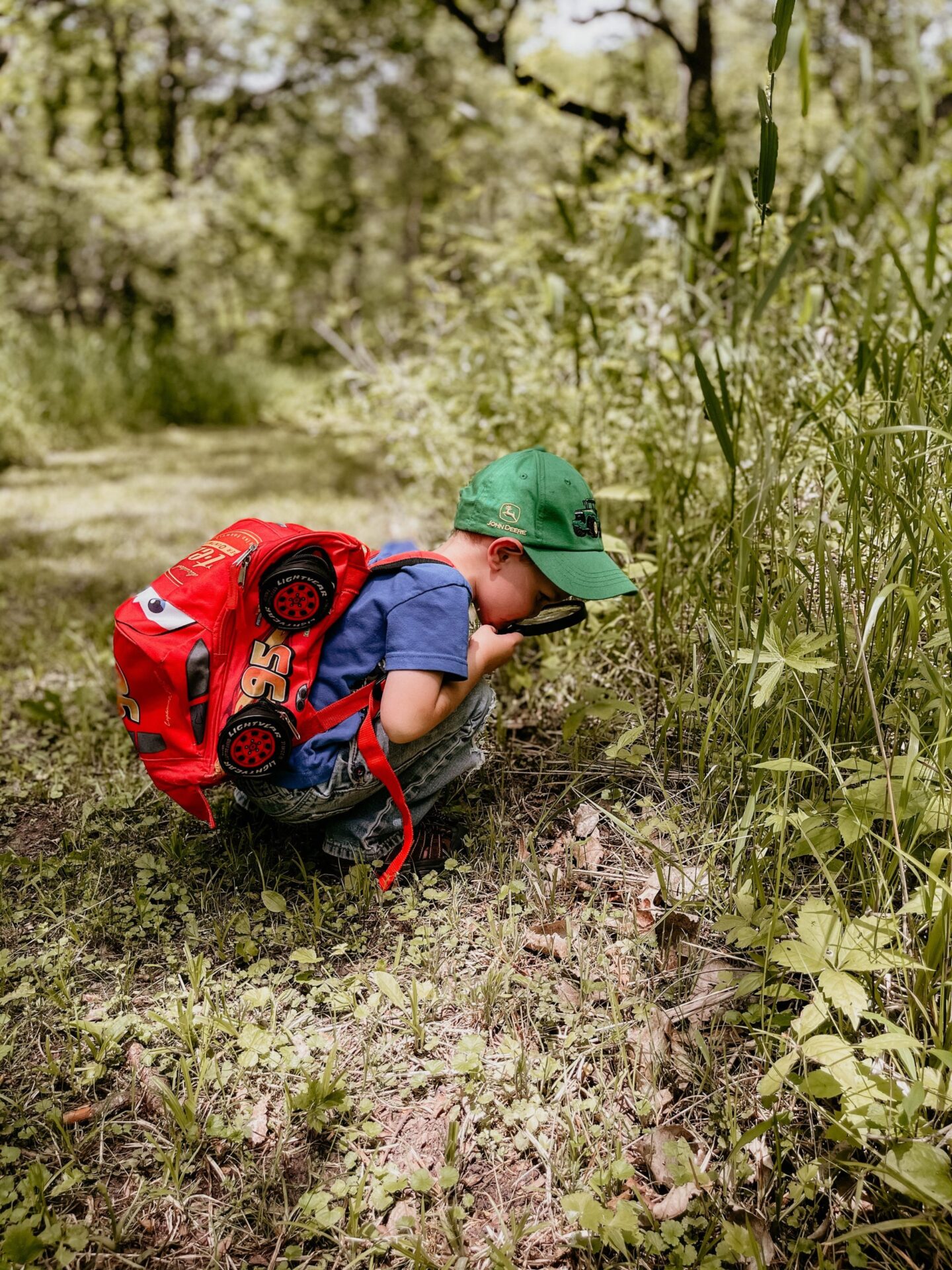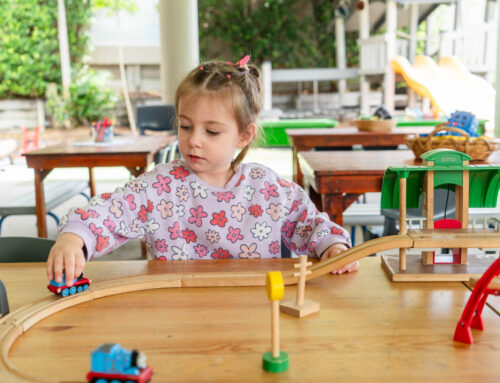Let’s Never Lose our Sense of Wonder: How do we encourage our little ones to ask questions?
By Emma Daniels
Why does it rain? Why can’t Emus fly? How do planes fly? What makes an engine work?
We know that children are always asking questions, they want to know why and how. They are experiencing the world for the very first time. Everything is new, exciting, and interesting. Their little synapses (the information highways of the brain) are firing. They are constantly taking in what they see, hear, feel, taste, smell and meshing all that information together to form an understanding of their world. And all of that happens, for the most part, before they even start school. Before a child turns 7, they have formed the foundation for all of their future learning.
It’s a lot isn’t it? It is a big responsibility that we adults; teachers, parents, early educators, significant people take on in their young lives. So how do we encourage ‘why?’ How do we celebrate and encourage exploration and the seeking out of knowledge? How do we set our children up for a lifetime of learning?
We all desire answers to easy questions and hard questions. I encourage you to consider the value of giving an answer to a child’s questions versus teaching them and helping them to find the answer themselves. One of the most valuable and long lasting skills that you can teach a child is HOW to think, rather than WHAT to think.
My family are very passionate thinkers, debaters and seekers of knowledge. Anyone who meets my Mum and Dad, within the first 5 minutes of conversation with them, will understand how they have influenced all of their children to seek knowledge, always. They raised lifelong learners as they themselves are lifelong learners. We grew up in a home where reading was for pleasure, seeking knowledge was never discouraged, debate happened often and asking questions was encouraged. To this day, when my family gets together, we will always end up in a discussion or debate of some form or another. We almost never come to a solution, we occasionally influence a change of perspective, everything is said with varying degrees of passion, but we always go away with new information.
I love talking to my brother about ‘why?’ He is such a deep thinker, but only came to a love of reading in his early twenties. It was fascinating to see how the world opened up for him once he started to read. He found new ways to explore the ideas in his mind and even more empowering, he found new ways to express his thinking.
My Mum and Dad, in their own area of interest, are so knowledgeable; to us it seemed like they had all the answers! But one of the most valuable lessons they ever taught us was that they didn’t in fact have all the answers. They were open and honest about what they DIDN’T know, always.
They taught us:
- It was ok to not have all the answers
- That just because you’re older, doesn’t necessarily mean wiser or all knowing
- But most importantly, they showed us how to find the answers ourselves
- Not every questions has an answer, but that doesn’t mean you stop looking for one
Children are so very capable of understanding, comprehending, processing and applying complex information when given the opportunity and the tools. How do we teach them HOW to think, not WHAT to think?
Well, this is how my parents taught me and what I see emulated in my brother and sister:
- When we asked questions; we were sometimes given the answer and an explanation of why it is the way it is, but more often than not we were given an opportunity to seek out the answer for ourselves. In a book, from a professional, online, opportunity to experiment, from a visit to the planetarium!
- Answer a question with a question. My Dad, and now my brother, are masters at this one. When I ask a question about something, rather than give me a straight out answer and move on, they will ask me a question designed to progress my thinking without giving me the answer. I didn’t always appreciate it at the time. Sometimes I just wanted the answer! But looking back, I appreciate them taking the time to teach me HOW not WHAT
For example…
“Why does it rain?” I might ask
Rather than launching into an explanation they might ask…
“What do you know about the water cycle?” or “What happens when you heat water?”
- If we asked a question and they didn’t have time or the answer, they would tell us in some way; I can’t answer that right now, can you ask me again later and we can find out together. Or they would suggest a book I could read in the meantime that might help. E.g. “What does establishment mean?”
“Why don’t you go look in the dictionary and then come and find me and we can talk about it if you are still confused?”
- They gave examples, usually ones that related to our lived experiences. Whenever my parents got into ‘teaching mode’ and this happens to this day! They would always link back what they were explaining to something they knew I already understood. In this way I was using a foundation of knowledge that I already had and adding new information to find new understanding.
- Never discourage the seeking of answers. We were always encouraged to respectfully question anything and everything.
- Be a role model. We saw our parents asking questions, they showed us and talked through their experience and how they came to a conclusion. We saw them learning all the time, we still do. This was the most effective teacher for us.
Always be open to new possibilities and your children will follow. The world is an exciting and interesting place. Children have the unique ability to show us that there are still so many things to discover. Try viewing the world through the eyes of a child. Reconnect with your sense of wonder and discover together.
I will leave you with 2 quotes from one of my brother’s favourite modern thinkers, Neil Degrasse Tyson..
“I love being wrong because that means in that instant, I learned something new that day.”
“Knowing how to think empowers you far beyond those who know only what to think.”






